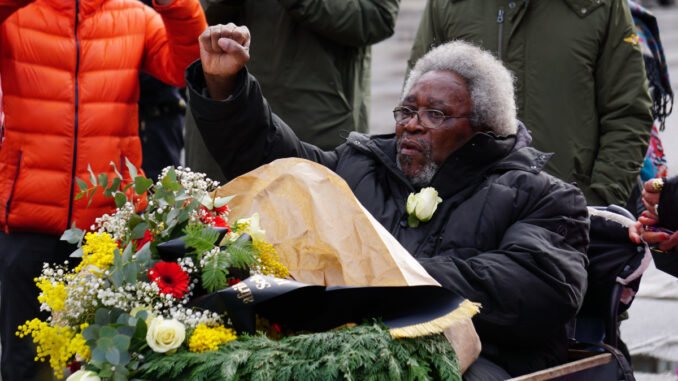
On the 138th anniversary of the Congo Conference, where Europeans once forcefully divided Africa among themselves, the African Black Community in Berlin is campaigning for a memorial.
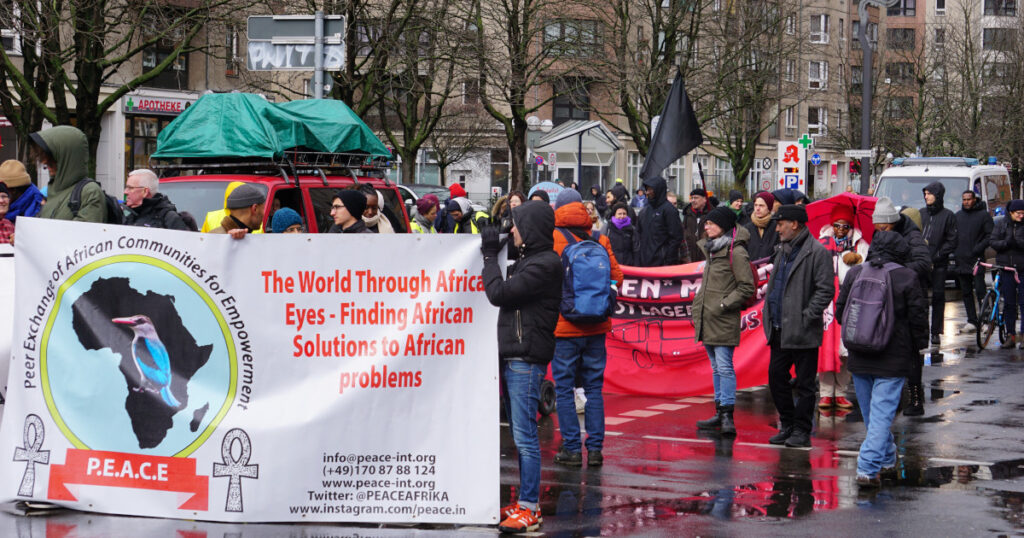
It was cold. Banners were reflected by puddles of melted hail. It was February 25, and I accomapanied the African Black Community (ABC) in Berlin on their commemorative march. Their intentions are expressed in a single Kiswahelian word „Maafa,“ which translates as „the great disaster.“ It expresses what Europeans have done to Africa since colonization began. In Europe, there is no such word because our cultural experience is not sensitive enough to grasp all the effects of our colonial exploitation. Today, that exploitation continues under new technological conditions and in the face of ecological challenges.
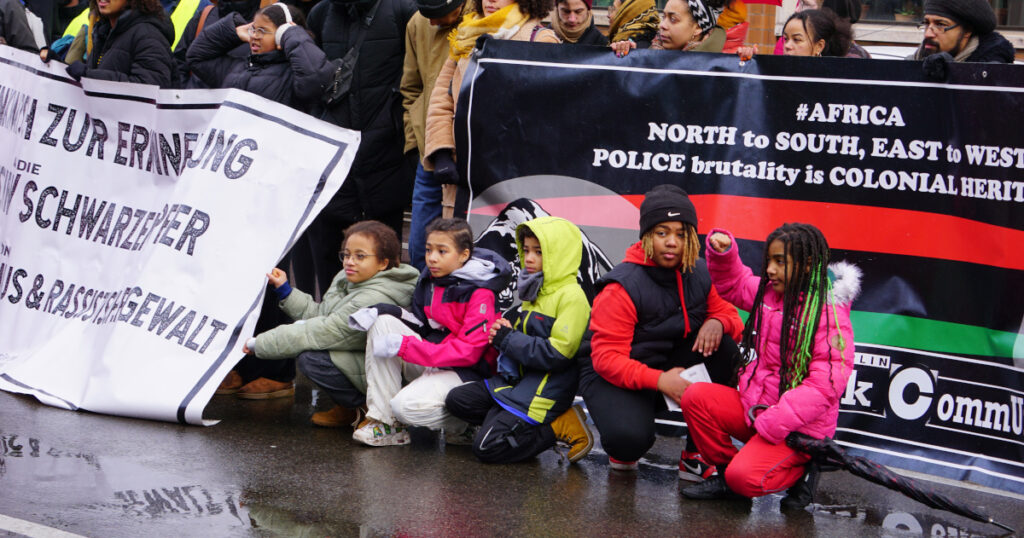
„It’s no coincidence how work is distributed around the globe,“ political scientist Joshua Kwesi Aikins explained. During the ABC march, which was attended by some 50 people, he described how Facebook outsources its content moderation to English-speaking African countries, where cheap English speaking employees can be found. „All that is possible due to the colonial past.“ Akins said that those workers filtered millions of hatefull comments and violent content from social networks and received no appropriate psychological support, but they were the ones who taught our new artificial intelligences about good and bad content.
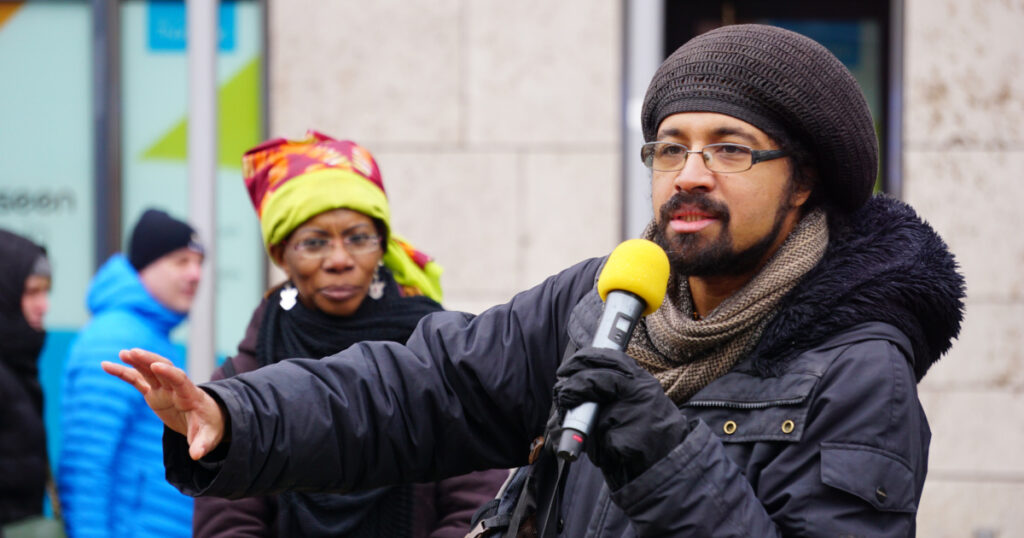
When the march reached the Humboldt Forum, Aikins spoke about an ongoing issue in postcolonial reappraisal. „The Humboldt Forum keeps hundreds of thousands of African artifacts that were obtained in a violent context.“ To clarify those ownership structures, Aikins called for the same commitment already practiced in dealing with Nazi looted art.
The activist Mnyaka Surru Mboro demanded the same. For 100 years in some cases, Tanzania and other African countries have hoped for the return of cultural artifacts and human remains. „This is about our ancestors,“ Mboro said. He and Aikins hold the Prussian Cultural Heritage Foundation directly responsible.
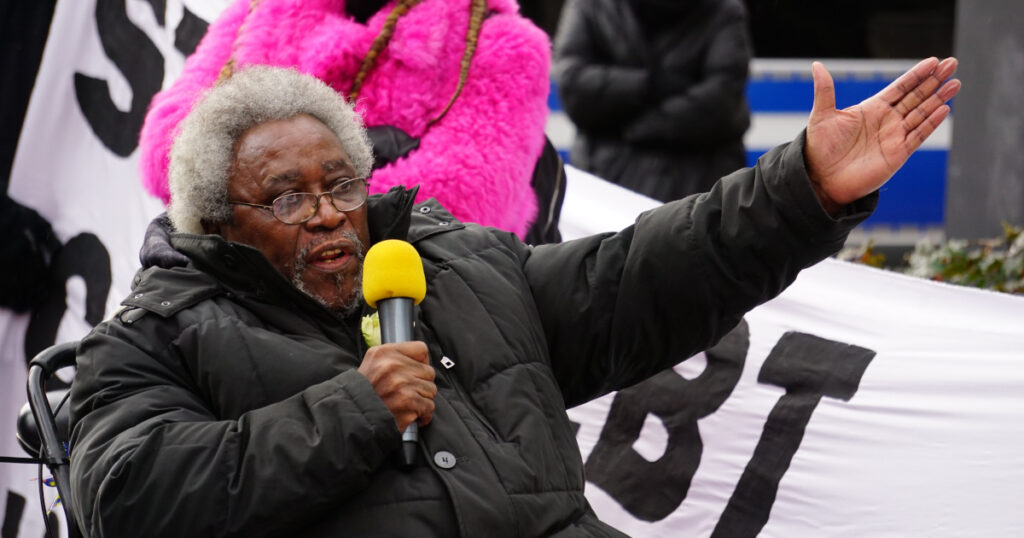
Pan-African women’s rights activist Marianne Ballé Moudoumbou pointed to the role of the Catholic Church in the exploitation of Africa. „There are popes who have held slaves on a large scale.“ She asked today’s bishops to take responsibility. In another speech, she referred to genocidal crimes against the Congolese population that would not have been possible without the Catholic Church.
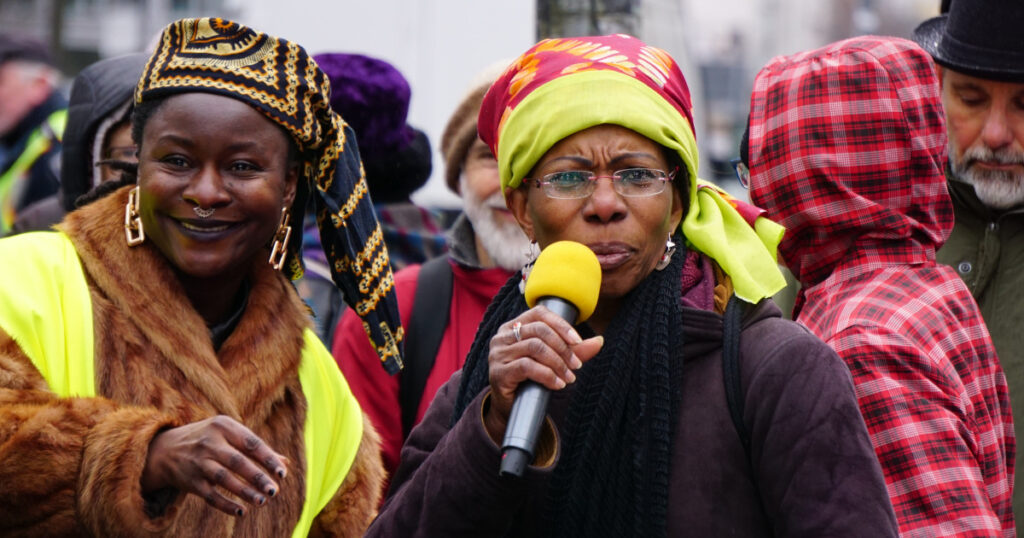
Moudoumbou and the other activists want to focus on all groups of victims who suffer and have suffered from colonial exploitation. During this 17th commemorative march, more topics came up than can be depicted here. That mass of multiple forms of exploitation is one of the reasons why the African Black Community of Berlin is campaigning for a memorial in the capital of Germany. This memorial should make all that visible to which the white majority society still closes its eyes.
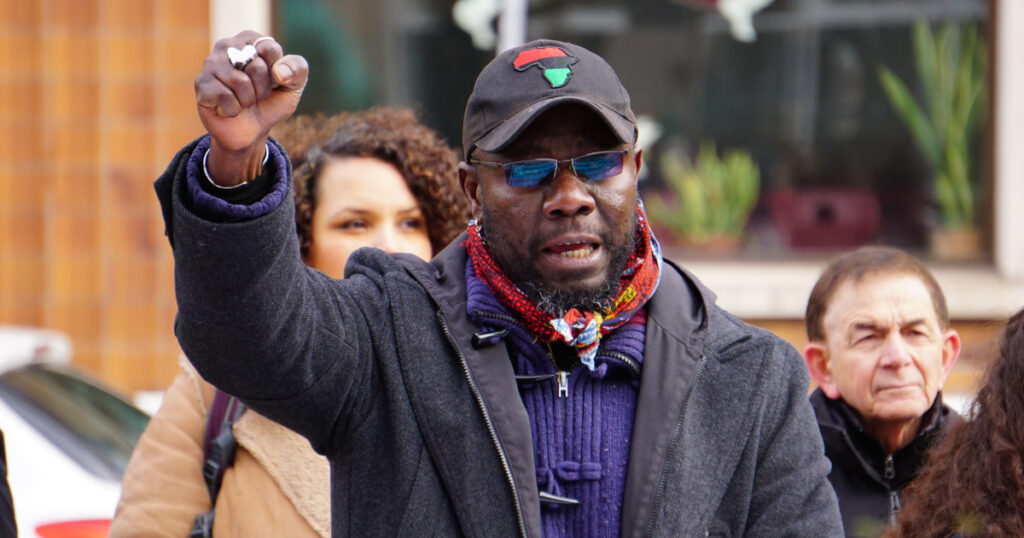
Mbolo M. Yufanyi carries the idea for building an African memorial too. But towards the end of today’s march, he also expressed disappointment that „too few sisters and brothers“ had participated. „When assaults happen, the outcry is always huge. That’s why it’s important for us to raise our voices now. We need to come together. We have so many networks.“
(c) Photos, text and translation from the German original: Jan-Christian Petersen
